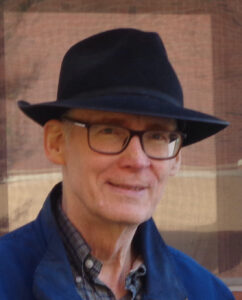Ames, IA. On a late afternoon in the early 1980s, a standing-room-only crowd at the University of Pennsylvania packed a conference room to hear Jonathan Culler discuss his latest book, On Deconstruction. Introducing Culler, Penn Americanist Larzer Ziff remarked that when asked for a succinct, reliable explanation of contemporary literary theory, he inevitably replied, “Read Culler.” Many academics around the country concurred. For Americans who hadn’t gotten around to reading the definitive “texts” by Jacques Derrida, Paul de Man, and others, and who needed someone to unlock the mysteries of differance and grammatology, Culler was the unanimous choice.
The Penn crowd listened impatiently to Culler’s overview lecture, then at Ziff’s invitation the bravest raised their hands, and the much-awaited show began. Some “questions” preened, others attacked. A handful actually sought answers and clarification. Culler parried the thrusts and hit the softballs out of the park, performing throughout as the brilliant expert everyone had come to see. After a half hour of tense intellectual combat, a young man in the back launched a winding, dazzling query that, when it finally ended, left the audience hushed and bewildered. Culler stood silently, gazing at the walls and ceiling. “I don’t know the answer to that question,” he said.
Larzer Ziff, in his shapeless tweed jacket and skinny green tie, stepped forward and reclaimed the microphone. A sly smile played on his lips. “Well, I do,” he said, and paused. “But I’m not going to tell you.”
Ziff was my teacher during my first year of graduate school. His impish performance at Culler’s lecture captures the romance and excitement that filled, for me, those thrilling early months. Before leaving Penn for Johns Hopkins the following year, Ziff mesmerized students with heroic readings of Edwards, Franklin, Emerson, Thoreau, Hawthorne, Melville, and Whitman. After class we would savor his best lines and debate his arguments, re-living what we all recognized as the high point of the week. I never had another professor as colorful and engaging as Ziff. But several other outstanding teachers did challenge and encourage me, perhaps intrigued to discover in their midst a naive evangelical from small-town western Pennsylvania. Time after time, they listened to my hazy plans for a paper, then pointed me to the books and ideas I needed. A fearsome proponent of “radical relativism” once glanced at some cowardly half measures I proposed, then helped me formulate my own theistic approach. Others ignored my gaffes and cheered my breakthroughs, eager to nurture a hidden spark they saw in me.
Somehow, though, I kept letting these people down. I did all right in the program, always landing the next fellowship and weathering the next exam, but something wasn’t right. At the deepest level I remained the abashed outsider who ventured into Bennett Hall in the fall of 1980. Looking over my completed preliminary exams, my future dissertation adviser said she’d held high hopes for these essays, but that somewhere along the line they’d gone off track and come up short. I agreed, feeling sorry more for her than for myself. We sat looking at each other, with nothing to say.
I’d been given a clue to the problem the year before, during my “Fifty Book” oral exam. On that awful morning, sitting around a table in my committee chair’s office, three faculty members grilled me about the works I’d chosen. Of course the examiner I’d feared the most turned out to be a sweetheart, while the other two scowled and hammered away at my answers. I panicked, grew increasingly halting and tongue-tied, and finally escaped with a lowly “Pass.” Summarizing the committee’s verdict, the chair looked grave and said I lacked a critical vocabulary.
I took him literally, wondering what magic words I should have uttered. Maybe if I’d said “irony” and “ambiguity” more frequently…? Years later I realized that my examiner had tried to instill in me a crucial truth about being an academic. My job in the Fifty Book exam was not to know about selected works of literature. Such knowledge was, at best, a boring prerequisite. My professors wanted to know how well I could talk about those works—whether I knew what others were saying about them, and could contribute to “the conversation.” Of course I ought to be versed in the correct terminology, but more broadly I needed to understand the debate and advance it in interesting ways, using all the most up-to-date words and approaches. That was what having a critical vocabulary meant.
Now don’t get excited. This isn’t the part where we call fire and brimstone down on literary theory with its opaque concepts and outlandish jargon, and remember a time when people talked about books in clear, everyday language. Professionalization—which is to say joining the conversation—encompasses more than a single tendency or fashion and has been around since William James sat down at his desk at Harvard to rail against “The Ph.D. Octopus.” Whether you’re a jargon-spouting post-humanist or a staunch defender of the Great Books, if you teach at a college or a university, and you discuss ideas with your colleagues, you are part of the conversation. You have been professionalized.
Not that there’s anything wrong with that. My wife belonged to the profession for more than thirty years. But in my case the lessons of grad school failed to take, and what I really learned was that I belonged somewhere else. While many—far from all—of my classmates joined the conversation, I stood off to the side, puzzled and mute.
Another thing I learned in grad school was how to survive on a stipend of $400 a month. I wasn’t poor—I knew my parents would bail me out when things got tight—but I never expected to do more than get by. During those first years of relatively independent adulthood, my grad school friends and I lived from payday to payday, and took a lack of money for granted. Frugality united us, giving the word “fellowship” a curious double meaning in a lonely place and time. We lived in shabby apartments, shared simple meals, and for entertainment swapped books and department gossip. Doing without and making do became second nature. The one or two well-off students among us threw lavish parties that only reinforced the norm.
When my wife and I met on the fourth floor of Bennett Hall, frugality became not just mandatory but fun. We turned out our wedding program on my old manual typewriter, then rode the train to Baltimore for a three-day honeymoon. We counted how many meals we could squeeze from a pair of turkey drumsticks—purchased without the rest of the turkey, of course. For a big night out, we bought a package of hot dogs and exchanged the label for nosebleed seats at a Phillies game.
The next five or six years after Penn left us little choice but to continue in frugality mode. I achieved my academic high-water mark with an instructorship at the University of Chicago, where my health benefits covered the birth of our first child and we met lots of interesting people. During those two years we almost never went out. On Saturday nights we bought the early-edition Sunday Tribune and luxuriated in an evening of non-academic reading. We permitted ourselves an occasional take-out pizza and knew the whereabouts of every grocery-store special in Hyde Park.
Eventually my wife got a tenure-track job at Iowa State, where I quit my adjunct job and became Wendell Berry on the prairie—minding the kids, hanging clothes on the line, growing a big garden in the little backyard. Thanks to my wife’s salary, augmented by administrative jobs, we no longer lived so close to the bone. We had enough, and enough gradually became plenty.
Essentially, however, not much changed. We’ve lived in the same comfortable, modest-sized house for twenty-eight years. We bought a car when we left Chicago for a tiny town in Minnesota, but have never owned more than one compact sedan at a time. It usually sits in the driveway while we do errands on foot. Cell phones came, then smart phones. We declined. Salads come from the garden, bread from my hands. My biggest gripe during early COVID time, before people started picking up their groceries or getting them delivered, was having to share the store with newbies who suddenly weren’t able to eat out, and who now jammed the produce and baking needs aisles. Yeast became difficult to find, required for other people’s trendy pastime. With the return to normal life, supply-chain issues have remained a nuisance, but at least the crowd is off spending its money in restaurants again.
We could have embraced our thrifty ways after reading books about household economy and the environment; or at the promptings of our Christian faith; or from observing the habits of friends we admired. There were—and are—lots of compelling reasons to reduce our wants, curb our spending, and get by with less. To be honest, though, we lived cheap in our twenties because we had to, and we simply never bothered to stop. We became “perpetual grad students,” as we call ourselves now, letting a straitened state become a state of mind.
Except for moments like Larzer Ziff’s post-lecture levity, my memories of grad school are pretty dismal and confused. Temperamentally and vocationally, I was in the wrong place. Yet I don’t regret a single day I spent there—not only because I met my wife, but because I learned to relish a simple, quiet way of living that many around us seem anxious to exceed. Like a pacifist who emerges from a stint in the Army with a passion for neatness and order, I survived a profoundly uncongenial institution and took away a lifelong benefit. I might have stumbled in through the back door, but I wound up on the Front Porch.




